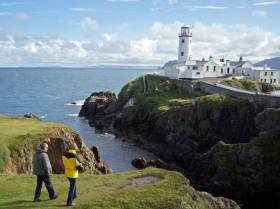Displaying items by tag: Feedback sought
#lighthouses - Contributory feedback from marine users of navigational aids is been sought from Irish Lights of its Aids to Navigation provision around the coasts of Ireland.
Every five years, the General Lighthouse Authorities (GLA), comprising Irish Lights, Northern Lighthouse Board and Trinity House in the UK, conduct this review to assess AtoN requirements.
Over time changes can occur which affect Aids to Navigation requirements and their development such as trade patterns, vessel types and volume, the seabed, development of offshore projects or changes in technology. The review will include individual AtoN and systems of AtoN to ensure international standards are met.
All users of marine Aids to Navigation are invited to contribute to the review by commenting on the usefulness and usability of existing AtoN provided by the GLA. Input is particularly welcome on any proposed requirement for the provision of additional AtoN; improvements to the current mix of AtoN; technological developments or additional services. Feedback is also welcomed on Irish Lights data service which provides near real time meteorological information.
Emphasising the critical importance of user input Captain Robert McCabe, Director of Operations and Navigation Services, Irish Lights said, “International standards require average availability ranging from 97 percent to 99.8 percent and Marine Aids to Navigation must serve all users of the sea, from small leisure and fishing craft to large liners and cargo vessels. Input from experienced users is essential to the process of defining the correct mix of Aids to Navigation. Local knowledge and experience built through time at sea cannot be replaced by desktop analysis no matter how modern and sophisticated the tools may be”.
Responses should be submitted before 30th July 2019 by emailing [email protected] or write to Navigation Services, Commissioners of Irish Lights, Harbour Road, Dun Laoghaire, Co. Dublin.
























































